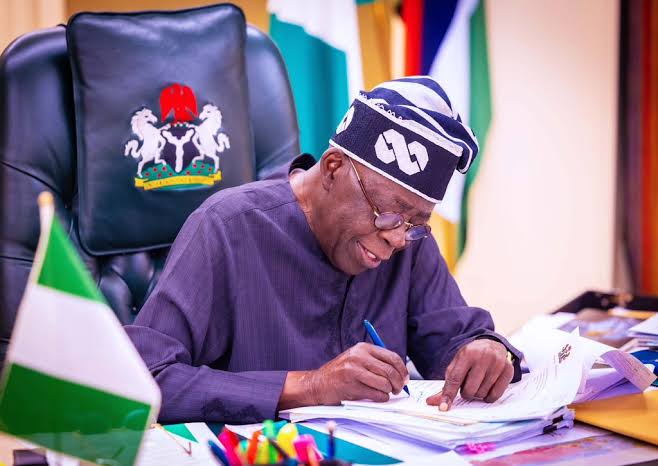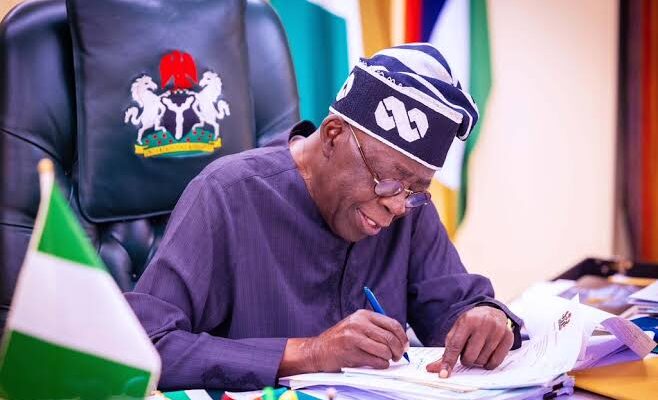
In his national broadcast commemorating Democracy Day on Wednesday, President Bola Tinubu announced that the Federal Government and organized labour have reached a consensus on the new national minimum wage. The agreement, which ends a prolonged period of negotiations, will soon be formalized through an executive bill to be sent to the National Assembly.
President Tinubu emphasized his administration’s commitment to democratic principles, highlighting the cooperative approach taken with labour unions. “We have negotiated in good faith and with open arms with organised labour on a new national minimum wage,” Tinubu stated. “We shall soon send an executive bill to the National Assembly to enshrine what has been agreed upon as part of our law for the next five years or less.”
Contrary to a more authoritarian response, Tinubu praised the administration’s choice of cooperation over conflict in handling labour’s demands for higher wages. “In the face of labour’s call for a national strike, we did not seek to oppress or crack down on the workers as a dictatorial government would have done. We chose the path of cooperation over conflict. No one was arrested or threatened,” he said. Tinubu described the negotiations as a testament to the democratic process, favoring “reasoned discussion and principled compromise.”
The President reiterated his dedication to preventing oppression in Nigeria. “I take on this vital task without fear or favour and I commit myself to this work until we have built a Nigeria where no man is oppressed,” he affirmed. Citing Franklin Roosevelt, he added, “There are many ways of going forward, but only one way of standing still.”
Tinubu encouraged Nigerians to remain hopeful and proactive for a better future. “We dare not slumber lest the good things awaiting our immediate future pass us by,” he urged. “The initial rays of a brighter tomorrow now appear on the early horizon. An abundant future and our capacity to achieve that future lie within our reach. Let us board this progressive train together. Together, let us move Nigeria forward.”
The announcement comes after a period of unrest, with organized labour initiating a nationwide indefinite strike on June 3 due to the Federal Government’s initial refusal to increase the proposed minimum wage from ₦60,000. The negotiations had been fraught, with labour initially demanding ₦250,000 while the government and private sector agreed on ₦62,000. Labour rejected this offer and also dismissed a subsequent proposal of ₦100,000 from some economists and individuals, as stated by Nigeria Labour Congress’ Assistant General Secretary, Chris Onyeka.
The executive bill, once passed, is expected to provide a legal framework for the new wage agreement and ensure its implementation in the next five years or less.

Comments